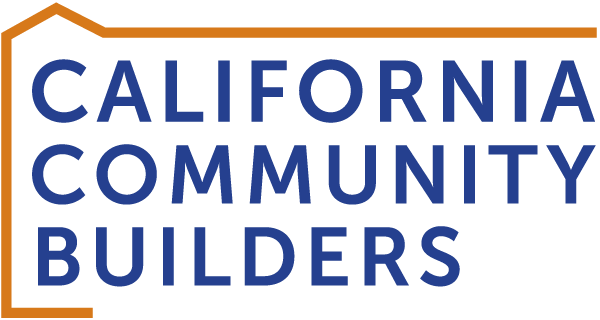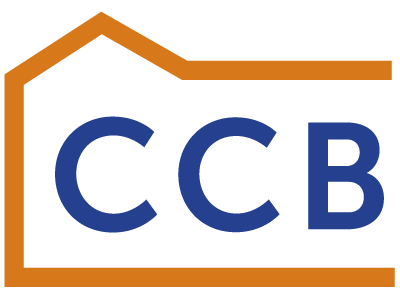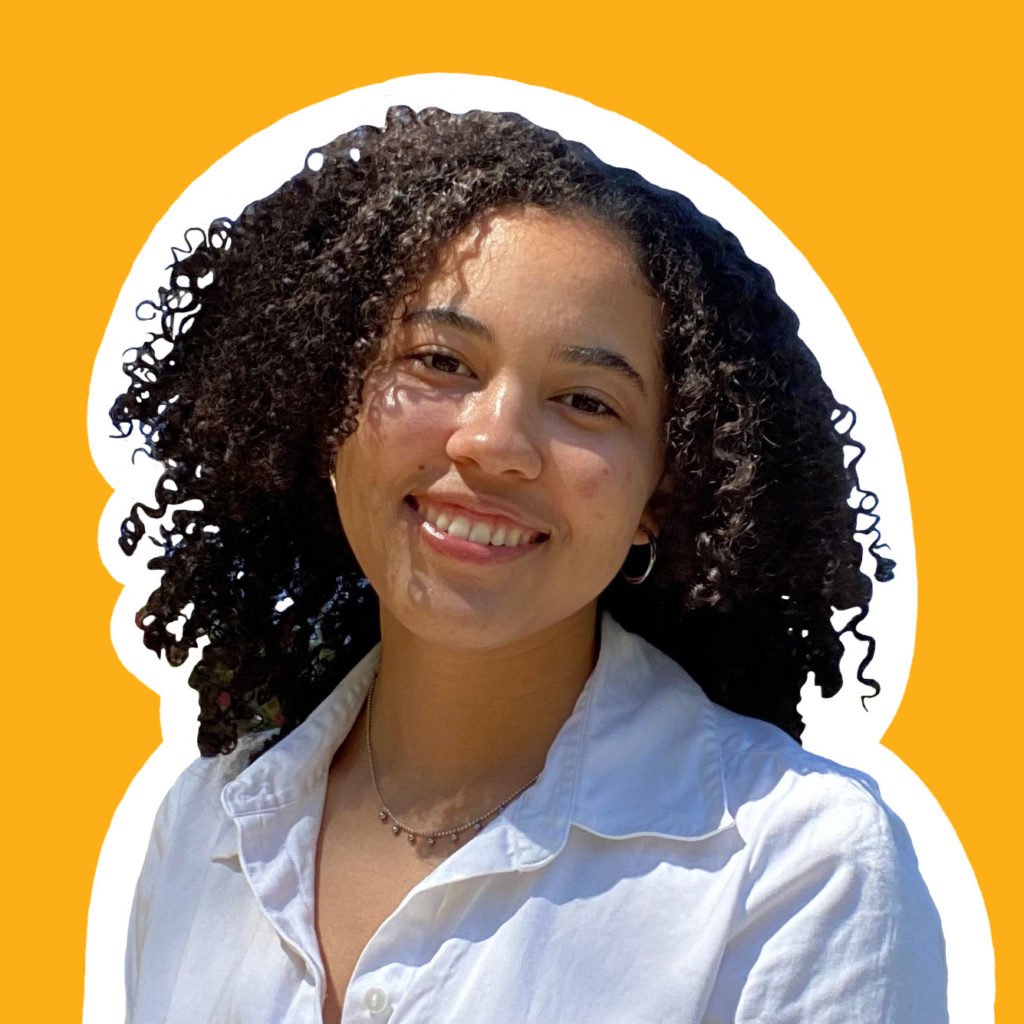Closing the Racial Wealth Gap Through Housing & Homeownership
We are dedicated to closing the racial wealth gap and we know that housing and homeownership must play an essential role. We work for policies that will enable communities of color to build wealth and economic security and that will end California’s housing crisis.
About Us
Our Vision
We envision a nation where everyone has a safe place to call home – a home that helps build economic opportunity rather than undercuts it, enabling individuals and families to pursue their dreams. We seek a society in which communities of color have their full share of economic power, in which the economic and racial injustices of the past are replaced by vibrant, diverse communities where all residents can build wealth, own a home if they choose, and fulfill their full potential.
Our Mission
California Community Builders seeks to close the racial wealth gap by focusing on the core issue of housing and homeownership. Taking a data-driven, outcomes-focused approach, we research and advocate for policies that promote wealth-building and tear down barriers created by redlining, exclusionary zoning, and all forms of discrimination.
Communities of Color Face Unique Obstacles to Economic Security
For communities of color in California, the playing field has never been level. We have less wealth, lower incomes, and lower rates of homeownership. For every dollar of wealth a white family has, Black and Latino families have about 15 cents. That’s barely changed in over half a century.
This racial wealth gap didn’t happen by accident. It was created by deliberate policy choices and can only be fixed by making new and better choices.
For decades the federal government actively promoted redlining, designating neighborhoods with residents of color as “undesirable” – stifling lending and investment and depressing property values. State and local governments, banks and private developers pursued their own discriminatory policies, locking Blacks, Latinos, immigrants and other “undesirables” into substandard housing and suppressing their opportunities for homeownership. The legacy of these policies continues, and despite being illegal, discrimination never fully went away.
As a result, Blacks, Latinos and certain Asian/Pacific Islander communities are far less likely than whites to own their own homes, crippling their ability to build wealth and economic security. California’s housing affordability crisis makes these problems even worse.
People of Color Pay the Price for California’s Broken Housing Market
Housing in most of California has become unaffordable for far too many families, whether they rent or seek to buy a home. Contributing factors include zoning that limits what can be built where, high building costs, and lack of public and private investment in affordable housing and in creative solutions such as shared-equity models. Too often, political leaders have been afraid to tackle these structural issues because doing so might require challenging vocal or well-financed interest groups.
Because communities of color start with far less wealth, high housing costs often present an insurmountable obstacle to homeownership and the economic security it can bring.
Our Approach: Building Economic Security & Opportunity through Housing & Homeownership
We focus tightly on housing as a solution to the racial wealth gap, taking a pragmatic, results-oriented approach designed to produce change as quickly as possible. We emphasize:
Research
We produce cutting-edge research to understand the problem and explore potential solutions, enabling us to educate the public and policymakers.
Advocacy
We work at all levels of government to establish policies that promote housing production and affordability and eliminate discriminatory barriers to both, while advocating directly with financial institutions for improved lending practices.
Implementation
Passing good legislation or regulations isn’t enough. They must be carried out in a way that really makes a difference. We act as watchdogs on implementation to ensure that policies aren’t just window dressing, but make a real-world difference in boosting economic security and access to housing.
Our Team
Staff
-
Adam Briones is the Chief Executive Officer of California Community Builders (CCB), where he leads research, advocacy, and community organizing efforts to end Californias racial wealth gap and housing crisis for communities of color. Prior to CCB, Adam was the Senior Director of Economic Equity of the Greenlining Institute where he helped to secure over $10 billion in community reinvestment commitments from large financial institutions. Previously, Adam spent a decade in housing development and real estate finance, primarily in New York. His work there included acting as Vice President of Real Estate Development at the Genesis Companies, one of the city’s most active African American-owned affordable housing developers. Adam was also a Senior Analyst for HR&A Advisors, a leading national consulting firm specializing in real estate and economic development advisory services. Before that, Adam was a Housing Fellow with New York City’s affordable housing finance agencies, the NYC Housing Development Corporation and the Department of Housing Preservation & Development. As a Housing Fellow, he closed construction and permanent financing on over 1,300 units totaling more than $150 million in debt and tax credit equity. As a Congressional Hispanic Caucus Fellow in Washington DC, Adam interned with the office of Congresswoman Maxine Waters and the House Financial Services Committee. Adam has also held internships with Union Bank’s Community Development Finance group as well as the West Angeles Community Development Corporation, a faith-based community developer. Adam holds a Master of Urban and Regional Planning from the University of California Los Angeles and earned his Bachelor of Arts in Anthropology from UC Santa Cruz. Adam was born and raised in Oakland, CA.
-
Sylvia brings over 15 years experience in operations and leadership roles in the public and private sectors. In her role as Chief Operating Officer of California Community Builders, her primary responsibility is ensuring optimal operational efficiency and effectiveness. She has extensive experience in communications, organizational development, and leadership. She holds a Bachelor of Arts degree in Mass Communication from the University of California, Berkeley and a Graduate Certificate in Organizational Psychology.
-
A Hawai’i and Bay Area native, Greg’s career has been dedicated to public service and creating more diverse and equitable communities with a focus on land-use and housing policies. Greg comes to CCB from CalHDF, where in addition to suing cities for illegally denying housing, Greg worked to strategically grow CalHDF’s reach, influence, and resources, while working to demonstrate the importance of state housing law enforcement as a novel, yet critical component of mitigating California’s dire housing shortage. Before that, he was previously the Digital Marketing and Communications Manager at Building Opportunities for Self-Sufficiency, an organization that works with and for homeless, formerly incarcerated, and/or low-income populations. In addition, he is one of the co-founders and Co-Executives of the social equity nonprofit East Bay for Everyone, once served as Senior Aide to former Berkeley Mayor Tom Bates, and has served in appointed roles as a Berkeley Housing Commissioner, Berkeley Environmental Commissioner, and on the Alameda County A1 Housing Bond Oversight Committee. Greg has a Master of Urban Planning from the USC Sol Price School of Public Policy and a BA in Political Science from UC Berkeley.
-
I am a 4th year Architecture student at UC Berkeley. I am passionate about creating functional, beautiful, and inclusive spaces that reflect the needs and identities of those living in them. Outside of academics, I enjoy drawing, crocheting, and playing Guitar Hero with my roommates.
-
Greetings! My name is Moremi Olora (she/her). I am a 4th year Sociology major and African American Studies minor at UCLA. When I’m not doing peer counseling sessions or mentoring UCLA freshmen, you will find me making abstract drawings, organizing my playlists, or journaling at the beach. I’m so excited to be working with CCB to conduct research looking at the intersections of housing and environmental justice. Bridging the gap between the two will put us one tiny step closer to make our communities safer and more sustainable!
-
Gillian is a second-year graduate student at San Francisco State University studying political science, with a concentration in American politics and government. She hopes to pursue a career that addresses political disenfranchisement and inequality, and is looking forward to beginning this work as a part of the CCB team. Aside from academics, Gillian loves cooking, reading, line dancing, and walking her dog around the Marina.
-
Leila (they/she/he) is a fourth-year student at UC Berkeley working towards a B.A. in Architecture and minoring in Spanish Literature. They are interested in pursuing design and exploring careers that address community needs through environmental design and architecture. Aside from school, Leila enjoys carving linocut blocks and printing on clothing, vending at craft markets, and analyzing fashion in period-piece movies.
Board of Directors
-
Mansur is a commercial real estate professional with a concentration in affordable multifamily housing. He has a Master of Science in commercial real estate development from the University of Maryland at College Park and a decade of professional experience working for one of the nation’s largest non-profit affordable housing developers, The NHP Foundation (NHPF). In his role as Senior Vice-President of Development, he is responsible for the full scope of creating and preserving affordable housing, including acquisition, deal structuring, and raising public and private debt and equity. He is also well versed in financing renewable energy developments, state managed affordable housing grant/loan and tax exemption programs, and HUD sponsored programs. Mansur sits on NHPF’s strategic planning board, is a member of NHP’s diversity and social equity committee, co-chairs the firms emerging leader forum that works to cultivate and grow NHPF’s young talent, and leads the firm’s initiative to partner with local colleges and universities to provide internships for students.
-
Robert is Executive Director of The Two Hundred for Homeownership and Founder of ZeZeN Advisors, Inc., has a 45-year professional and civic career that spans both private and public sectors and several industries. The Two Hundred for Homeownership fights to mitigate the increase in poverty and the growing wealth gap in California through homeownership and home building. It is a statewide coalition of founders of civil rights organizations, community and business leaders, housing advocates, former state legislators, and cabinet members. ZeZeN is a boutique financial services firm that connects institutional capital with developers and real estate owners. Following his service as Chairman and Trustee of Alameda County Retirement Board (pension fund), he joined the investment industry as a Senior Vice President & Partner of Kennedy Associates, an institutional investor for pension funds.
-
Joe is a civil rights leader and former Assembly Member in the California State Assembly, where he served 3 terms representing the 23rd District of San Jose. As an Assembly Member he served as Chair of the Assembly's Insurance committee, and held positions on the Elections and Redistricting committee, Governmental Organization committee, and the Revenue and Taxation committee. He also served on the Special committee on Urban Education and was Chair and Vice-Chair of the 26 member Latino Legislative Caucus. Joe began his career as a teacher in the Oakland Unified School District and, after four years on the Oakland City Council, became the Superintendent of the Oakland schools. In 1988 he accepted the position of Superintendent of the East Side Union High School District in San José and served the East San José community for 14 years.
-
Ortensia has recently retired from directing El Concilio, an umbrella organization of Latino service providers that improve the quality of life for Latinos, for over 15 years. Previously she was a co-founding member and Chief Executive Officer (CEO) of the Bay Area Latino Non-Profit Association, and CEO of the North Peninsula Neighborhood Services Center. In these capacities she was responsible for developing and managing successful and innovative programs for the poor and disadvantaged. She serves as Chair of the CPUC Low-income Oversight Board and on the Advisory Committees for Comerica Bank and One California Bank. Among the organizations for which Ortensia performs volunteer work are the Greenlining Institute, Latino Issues Forum, Hispanic Chamber of Commerce, California Energy Efficiency Commission, California Community/Business Partnership on Diversity, and many more. Ortensia is a Past-President and Vice President and currently serves as Treasurer of the Chicana/Latina Foundation, and resides in Belmont. Ortensia received a BA in Psychology & Chicano Studies from Los Angeles State University and a Master's in Urban/Social Planning from the University of Southern California. She is a graduate of the Institute for Executives of Non-Profits at Springfield University in Massachusetts.
-
Kelsey’s expertise in public policy, legislative advocacy, and integrating health and racial equity into systems change inspire her to promote innovative approaches to closing the racial health and wealth gaps for BIPOC families. At the Bay Area Regional Health Inequities Initiative (BARHII), Kelsey leads policy and advocacy efforts related to promoting prosperity for Black families through economic justice, structural change, and reparations. Prior to BARHII, Kelsey led health and racial equity policy initiatives at the Greenlining Institute, the Public Health Institute, the California Strategic Growth Council, and the California Department of Public Health. She received her degree in Sociology and Community Development from Howard University.
-
Jimmy has more than ten years of real estate experience in a variety of disciplines, including public/private partnerships, affordable housing, market rate housing, and economic development. As a Senior Manager of Development with Greystar, Jimmy is responsible for managing a number of market rate and affordable housing projects in various stages of development in the San Francisco Bay Area. Prior to joining Greystar, Jimmy worked in affordable housing development and investments at McCormack Baron Salazar, Enterprise Community Investments, and the New York City Economic Development Corporation (NYCEDC), where he served as Chief of Staff and Senior Associate in the Real Estate Transactions division. His inspiration for pursuing a double bottom lined approach originates from his in-depth knowledge of real estate and from his personal experience as the son of Vietnamese refugees and the challenges faced by his community and many others like it. Jimmy is a proud CSU alum having graduated with a Bachelor’s in Urban Planning from Cal Poly Pomona and a Master’s in City Planning with a concentration in Public/Private Development from the University of Pennsylvania.
-
Aysha Pamukcu is a champion for social justice through policy and systems change. She is the Director of the San Francisco Foundation's Policy Fund, which advances community-driven policy solutions to the housing crisis and economic inequality. She is also the founder of Movement Praxis, an equity-centered policy and philanthropic consulting practice whose accomplishments include co-creating the “civil rights of health” framework. Aysha has supported leaders across the country in meeting their community's needs through good governance and equitable policy. She previously served as ChangeLab Solutions’ first-ever Health Equity Lead, using policy to improve the health of the most marginalized people and places. Prior to that, Aysha worked as a civil rights attorney for the Greenlining Institute and clerked for judges in the Supreme Court Chamber of the Cambodian war crimes tribunal. Aysha’s commitment to justice work is anchored by her personal story. She is the proud child of immigrants and grew up in the San Francisco Bay Area.
-
Natalie Sandoval is Executive Director at the Urban Land Institute San Francisco (ULI SF) and has over 15 years of experience in real estate, economic development, urban planning, and landscape architecture. She has been with ULI SF since 2016 and a member of ULI since 2007. Over the last seven years, she led all the organization’s public sector initiatives and collaborated with ULI members to launch Housing the Bay, an initiative bringing together dozens of public, private, labor, and community organizations to share ideas and strategies and to foster equitable solutions to the region’s severe housing shortage. She was also instrumental in launching and directing ULI’s Diversity Equity and Inclusion efforts. Prior to joining ULI, she worked in the New York office of HR&A Advisors, an economic development and real estate consulting firm, as the Director of Marketing and Business Development. Prior to HR&A, she was the first Marketing and Business Development Manager for SWA Group, an international landscape architecture and urban design firm. Natalie received her MBA from the Presidio Graduate School and holds a BA from Bard College.
Leadership Academy
CCB’s young leaders make us who we are and training young leaders is core to what we do. CCB’s Leadership Academy started in 2018 and over that time students have authored original research, provided staffing and project management for our legislative advocacy, and helped to lead our digital communications work. Students receive direct mentorship from staff as well the opportunity to grow and learn from the civil rights pioneers on our board and within our network. We see the transfer of hard-earned knowledge and wisdom from veteran advocates to students as essential to preparing the next generation of leaders for the challenges ahead.
“I’ve learned how to use a racial equity lens in solving the housing shortage and will make sure to consider how policies contribute to the racial wealth gap.”
Hannah Phalen
“Being at CCB has shown me how to use community connections and resources to be an advocate.”
Minhal Hanif
“It’s crucial that we come up with creative solutions to begin to mitigate further life-altering effects of past housing policy failures.”
Moorea Benmosche





























